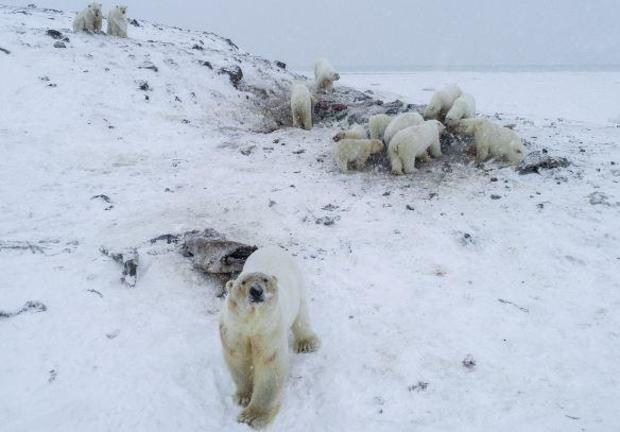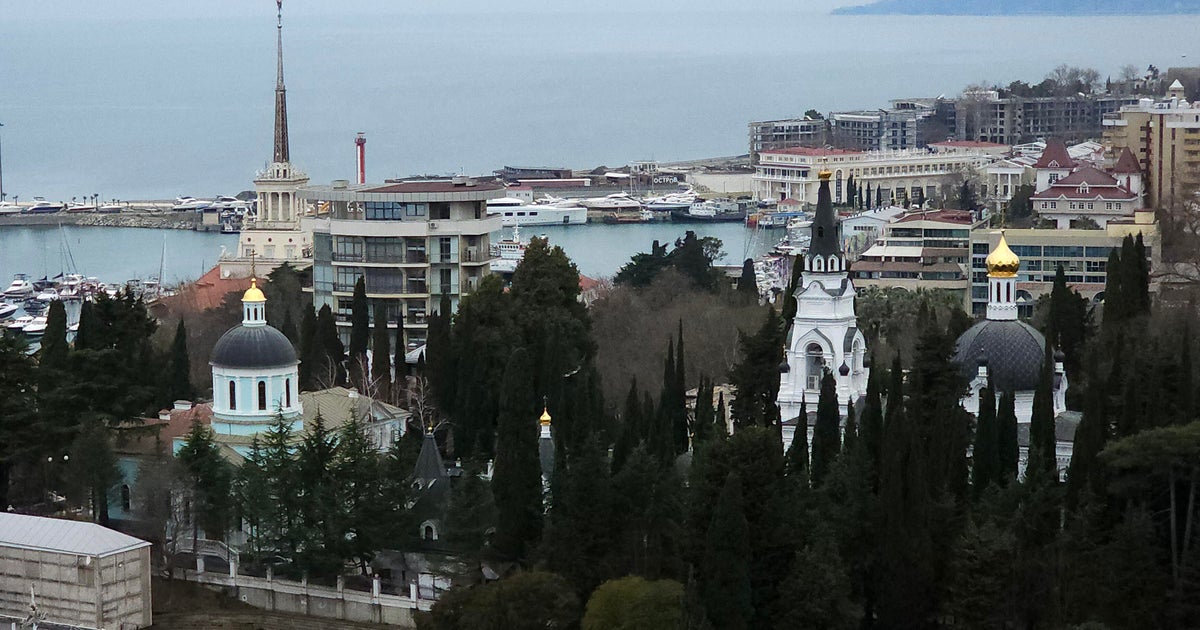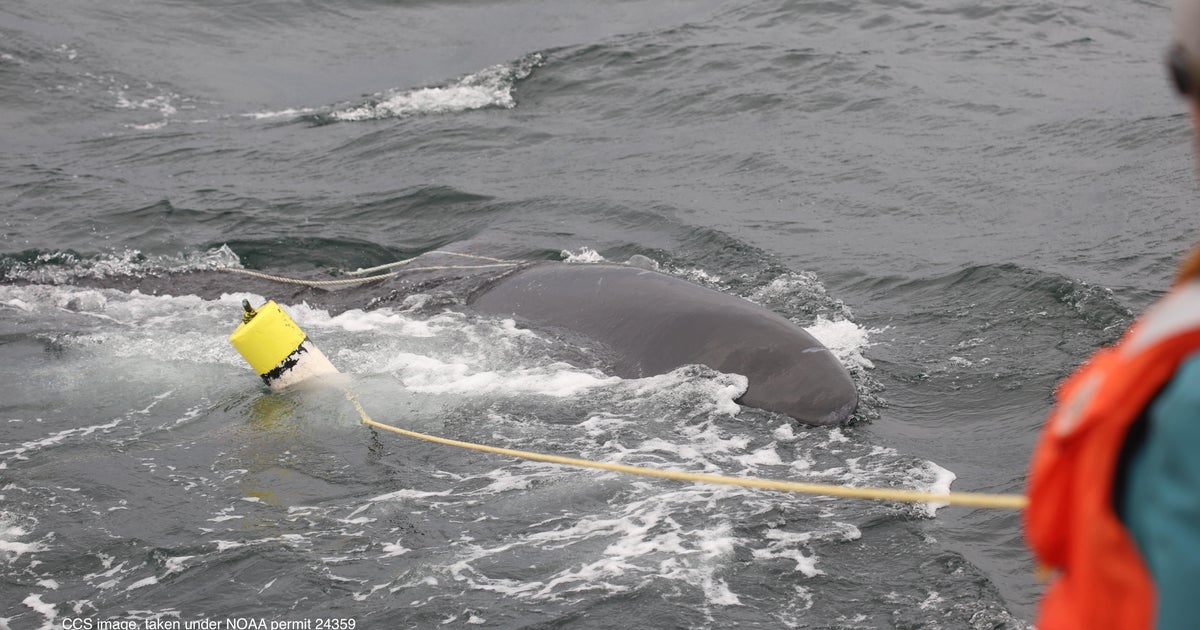Dozens of hungry polar bears are causing problems for a Russian village
Moscow — Dozens of polar bears have moved into the outskirts of a village in Russia's far north, forcing residents to take extra precautions as the hungry animals scrounge for food. Environmentalists say the warming climate could be to blame, as there's not enough coastal ice for the bears to move out over the sea where they would normally be hunting now.
About 60 bears have been counted near the village of Ryrkaypiy, in the Chukotka Region, more than half a mile inland, according to The World Wild Fund for Nature (WWF).
Public events, including seasonal concerts, were canceled in the village and children have being taken to school and nursery by bus to keep them safe. Teams of volunteers have been monitoring the area to make sure the bears don't enter the village itself.
Tatyana Minenko, the head of WWF's Bear Patrol in Ryrkaypiy (see their video below), said in a report released Thursday that "almost all the bears are thin." She said there were both adult and young animals, including females with cubs of different ages. They had found some walrus remains on the nearby Cape of Kozhevnikov, she said. There is a walrus breeding ground in the area.
Though polar bears are not uncommon in the area, such a large gathering so close to the village of about 600 people is unusual. Experts note that hungry bears are attracted by the smell of food waste and garbage.
"Gatherings of polar bears are becoming more frequent, and we have to adapt and find ways to avoid conflicts between people and animals," said Mikhail Stishov, Arctic biodiversity projects coordinator for WWF-Russia.
Anatoly Kochnev, a scientist at the Institute of Biological Problems of the North, told Russia's Tass news agency that the residents in Ryrkaypiy were very concerned about the increasing number of visits by polar bears. He went so far as to suggest that the local population could be temporarily relocated to a nearby village. Regional authorities, however, have insisted the situation is under control and said no evacuation was necessary, for now.
Russia's weather service was quoted by state media as saying freezing temperatures were expected to hit the Ryrkaipiya region during the weekend. As the coastal ice gets thicker, the polar bears are expected to head off the coast, where they would normally be this time of year to hunt for seals and large sea slugs called sea hares.
In February, a state of emergency was declared in the Novaya Zemlya archipelago region in the Arctic after dozens of polar bears were seen walking around local settlements. Footage showed the animals exploring hallways of residential buildings and neighboring populated areas.






